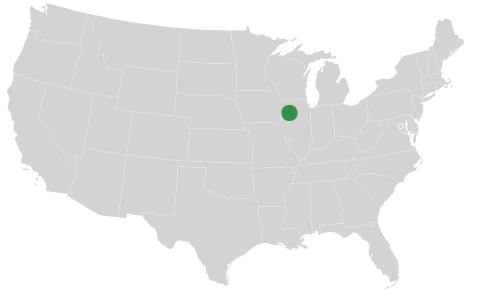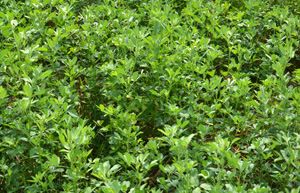 A dairy farm relying on alfalfa for high quality feed is composting to cut fertilizer costs and seeing dramatically increased alfalfa yields. This is good news for dairy farms feeling the pinch of high fertilizer and feed costs.
A dairy farm relying on alfalfa for high quality feed is composting to cut fertilizer costs and seeing dramatically increased alfalfa yields. This is good news for dairy farms feeling the pinch of high fertilizer and feed costs.
When Gary Smith and his son Jason Smith began composting seven years ago, it was to fulfill their farm's need for organic fertilizer. They partnered with a cattle feed lot which provided them with huge volumes of manure and spent bedding as raw materials for their compost. After purchasing an Aeromaster compost turner and completing a training session with Midwest Bio Systems, the Smiths were soon producing high quality compost which boosted the yields on their farm. Neighbors began to take notice.
Today they have a booming business making and selling compost to other farmers, organic and not. Jason Smith has already hauled compost as far as 60 miles for some customers, and the demand is such that he takes orders for compost up to four months in advance. Alfalfa growers are one group of customers who keep coming back for more.
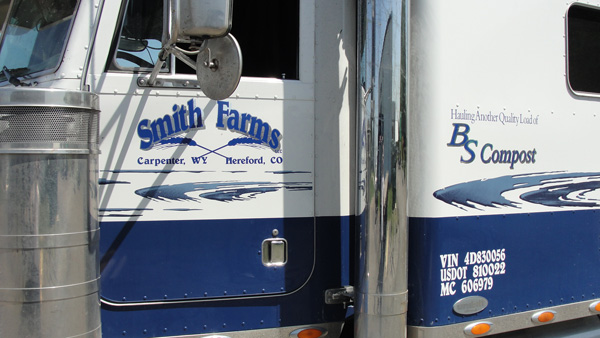
Enhancing yields and growing a healthy crop
Alfalfa is difficult to produce in Nebraska where water is scarce. Nearly all the state's crop is irrigated on center-pivots. This, coupled with the high cost of alfalfa seed, means growers need to maintain productive yields throughout the lifespan of their crop.
A local alfalfa grower heard about the Smith’s compost. At that point, Jason explained, he was spending huge sums of money every year on chemical fertilizers without getting the yields he needed to stay profitable. “His yields were actually dropping every year,” Smith said. This farmer decided to try his luck with compost. “We talked him into trying a full circle (center pivot) of alfalfa,” Smith said. “He had one circle that was conventional fertilizer, and one that was not, right next to each-other, and he saw very large increases on tonnage and feed value after doing compost the first year!”
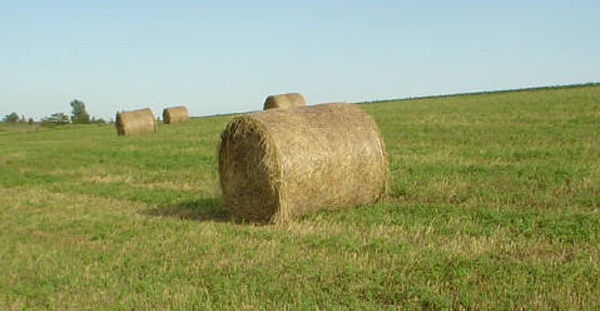
Another alfalfa grower saw even more amazing results.
“I had another guy that was doing alfalfa, and he's done commercial fertilizer, just dumped the money into it every year, every year, he tries to get his dairy-quality hay, alfalfa, out of it.” Jason talked this farmer into trying compost on a portion of one of his fields. “It was a half circle, so 65 acres.” Jason planned to spread his compost at five tons to the acre, but then he ran into a problem.
“I actually screwed up when I was spreading,” Smith said. “When we were spreading on the outside the spreader was only set at three-ton an acre instead of five. And we spread the outside tower and then we caught what was going on and we changed it and did all the rest (five ton) on the inside. But we had enough to spread that outside at five ton again, so the outside actually got about eight ton an acre. And we didn't say anything to him. The outside was kind of on a hill. I thought, 'You know, it's not going to make that big of a difference. It is what it is.’”
The next spring after the first cutting of alfalfa this farmer called Smith. He asked, “Hey! Did you guys do something different on that outside?” Jason recalled beginning to worry. “I'm thinking, ‘Man, I'm in trouble. Man, He's going to a yellow me and this is going to be bad.’ I told him what happened, and he said, 'Cuz' that outside pivot double-produced the inside. I was only making it half as far before I got a bail (on the outside).’ On that hill normally he barely even gets any hay off of it, it hardly even grows. And he's been pouring the commercial fertilizer into it. And he said doing that (the compost) was a huge increase (in yield).”
Independence for farmers. The secret is life in the soil.
Smith wants to make farmers aware that commercial fertilizer is not the only way to increase yields. Smith's high-quality compost has produced great results across a wide range of crops in addition to alfalfa, and for dairy farms or feedlots which produce large amounts of manure and waste every year, composting provides a source of free fertilizer, or the basis of a business selling to others.
Why has compost had such a dramatic effect on alfalfa yields? For one, chemically, compost behaves more like a dry fertilizer than raw manure. Five tons of compost gives you the fertilizer effect that 20-30 tons of manure to the acre will give you, Jason explained. Compost is also chemically stabilized, so while it packs more of a punch nutrient-wise, it is balanced nutrition that won't burn crops as quickly as manure. But Jason also believes there is something much more fundamental taking place in the soil than just a release of nutrients.
Smith’s theory of why the compost dramatically increases yields is that there's not enough biological life in the form of soil microorganisms, like bacteria and fungi, in the Nebraska soil that predigest nutrients and make them bio-available to the plants. This means adding compost allows more life to thrive in the soil so farmers can take full advantage of nutrients already there.
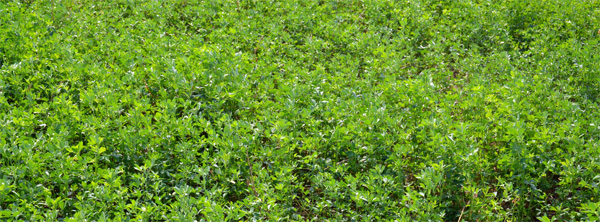 Alfalfa also forms a symbiosis with certain types of nitrogen-fixing bacteria. The bacteria sequester nitrogen from the air and make it available to the plant to supply its nutritional needs. If properly colonized by nitrogen-fixing bacteria, alfalfa can produce almost all of its nitrogen needs on its own, without the need for any fertilizers. These nitrogen-fixing bacteria, rhizobia, are present in most healthy, biologically-alive soils. Compost helps introduce them to areas where the biological life in the soils may be missing.
Alfalfa also forms a symbiosis with certain types of nitrogen-fixing bacteria. The bacteria sequester nitrogen from the air and make it available to the plant to supply its nutritional needs. If properly colonized by nitrogen-fixing bacteria, alfalfa can produce almost all of its nitrogen needs on its own, without the need for any fertilizers. These nitrogen-fixing bacteria, rhizobia, are present in most healthy, biologically-alive soils. Compost helps introduce them to areas where the biological life in the soils may be missing.
Overall, the feedback from his compost has been overwhelmingly positive, Smith said. Only one customer who tried his compost didn't come back for more. In the case of the alfalfa farmer who got impressive yields on his hilly field, he has continued to see an increase in tonnage and also a large increase in the Relative Feed Value (RFV) of his crop when he began combining his compost applications with applications of extracted compost tea this spring. For alfalfa growers compost is proving to be a low-cost, sustainable solution to their fertilizer needs.
In the next post we'll explore the basics of what makes compost a good fertilizer for alfalfa, and discuss why farmers in Nebraska might have seen such tremendous yield increases when they began applying compost as a fertilizer.
Considering a compost program for your dairy farm? If you have questions about the process, ask below.


